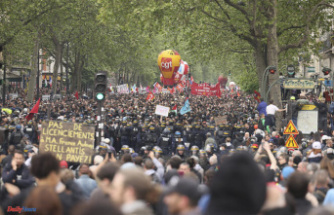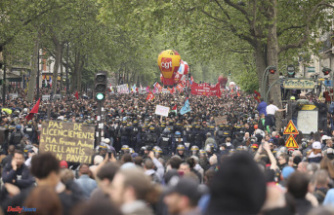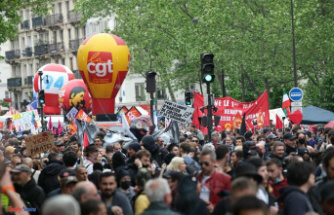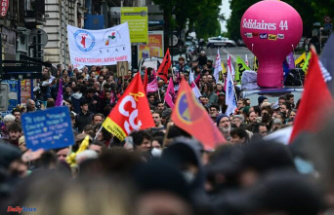The Eurozone is being hit by high inflation while the economy is weakening. The ECB is thus in a quandary and feels compelled to continue raising interest rates sharply.
The European Central Bank is following suit and will continue to raise interest rates sharply. It is considered agreed that they will raise the key interest rate by a whopping 0.75 percentage points to 2 percent tomorrow, Thursday. The reason: the eurozone is suffering from severe inflation. In September, the general price level rose by 9.9 percent - this is the highest value since the euro was created. And at the moment, inflationary pressures do not appear to be abating yet.
The pressure to act on the ECB and its President Christine Lagarde is enormous to get inflation under control. The high prices force many people to do without things in everyday life. According to a survey by the German Savings Banks and Giro Association (DSGV), almost 60 percent of consumers have already reduced their consumption. This is not just a problem for those directly affected. It's poison for the economy. At the same time, companies are being forced to raise prices because of rising costs.
There is also a risk that expectations in the euro zone that high inflation will be permanent. If that is the case, the ECB has an immense problem. On the one hand, this could set in motion a wage-price spiral. Workers then push through hefty wage increases across industries, assuming inflation will not return to the green for the foreseeable future. Companies raise prices to compensate. As a result, the general price level continues to rise, creating a chain reaction.
In addition, many people are keeping their money together in view of the ever-increasing amounts, even if purchasing power is steadily declining. According to the DSGV, more than half of those surveyed stated that they would restrict themselves even more than before.
The ECB reacts to this with a staccato interest rate hike. In July, it ended the zero interest rate policy that had lasted for years and surprisingly increased the key interest rate by half a percentage point. In September, it added another 0.75 percentage points, making it the biggest step in its history. Now, in all likelihood, it will repeat this jumbo rate hike.
The ECB can do nothing against the main drivers of inflation - because the interest rate level influences demand and not supply. Higher interest rates neither fix supply chains nor make energy cheaper. According to the German Economic Institute, more than half of the basket of goods used to calculate the inflation rate is made up of goods that are more influenced by the supply side.
Higher interest rates are the main way to combat inflation. They ensure that loans become more expensive and saving becomes more attractive. Consumers consume less, companies invest less - this leads to lower demand and dampens price developments. "It's a bit like hitting the entire economy with a hammer (in slow motion)," says the think tank Department Future, describing the effect of interest rate hikes.
Meanwhile, the eurozone is already on course for a recession. "In view of the intensified decline in production and the further weakening of demand, economic output in the euro zone is likely to contract in the fourth quarter of 2022," says Chris Williamson, chief economist at financial services provider S
The ECB will - as it currently looks - raise interest rates further in December. The only question at the moment is how big the step will be. Because for many months, inflation in the euro zone has only known one direction: upwards.












